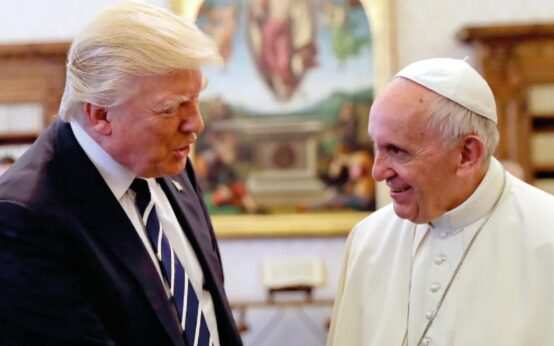Netanyahu Meets Trump, Nominates Him for Nobel Peace Prize
Israeli Prime Minister Benjamin Netanyahu met U.S. President Donald Trump at the White House on July 7, 2025. The meeting included a state dinner. Netanyahu praised Trump’s leadership.
He presented a letter nominating Trump for the Nobel Peace Prize. The nomination cited Trump’s role in the Abraham Accords.
Background of the Meeting
The Abraham Accords, brokered under Trump’s first term, normalized ties between Israel and several Arab states. Netanyahu highlighted these as a historic peace effort.

The meeting came amid ongoing tensions in Gaza and with Iran. It was their third meeting since Trump’s re-election. Netanyahu aimed to strengthen U.S.-Israel ties.
Who Initiated the Meeting?
Netanyahu initiated the visit to Washington. He announced his trip on X, stating he was traveling to meet Trump. The White House confirmed the invitation after Netanyahu’s announcement.
The visit was framed as a diplomatic effort to discuss shared interests. No evidence suggests Trump extended the initial invitation
The leaders discussed Iran, Gaza, and Middle East peace. Netanyahu emphasized countering Iran, Hezbollah, and Hamas. They vaguely addressed hostage releases and Gaza’s future. Trump’s team highlighted his commitment to expanding the Abraham Accords. Specific outcomes or agreements were not disclosed
Nobel Peace Prize Nomination
Netanyahu nominated Trump for the Nobel Peace Prize during the dinner. He handed Trump a copy of the nomination letter. Trump appeared surprised, saying he “didn’t know about it.” The nomination praised Trump’s role in Middle East diplomacy.
This was Trump’s second nomination, following one from Pakistan.
U.S. Public Perception of Netanyahu
ublic perception of Netanyahu in the U.S. is polarized. Supporters view him as a strong leader defending Israel’s security. Critics, especially , call his actions in Gaza aggressive.
Some see the nomination as a political move to secure U.S. support. Others believe it distracts from ongoing conflicts. Pro-Palestinian groups criticize U.S. backing of Israel under Netanyahu.
The meeting between Israeli Prime Minister Benjamin Netanyahu and U.S. President Donald Trump on July 7, 2025, at the White House drew significant attention, particularly due to Netanyahu’s surprise nomination of Trump for the Nobel Peace Prize.
Abraham Accords
The state dinner and discussions shows the U.S.-Israel alliance but also sparked varied reactions across the U.S. public.
The backdrop of the meeting lies in the Abraham Accords, a series of agreements brokered during Trump’s first term that normalized relations between Israel and countries like the UAE and Bahrain.
Netanyahu, facing domestic and regional challenges, including conflicts with Iran and Hamas, used the visit to reinforce ties with the U.S. and praise Trump’s past diplomatic efforts.
The nomination was tied to these accords, though critics question its timing amid ongoing violence in Gaza. Netanyahu initiated the visit, as evidenced by his X post announcing his trip to Washington for a third meeting with Trump since his re-election.
While the White House later confirmed the invitation, the impetus came from Netanyahu, likely to secure U.S. support amid Israel’s regional challenges. The visit was framed as a strategic move to discuss critical issues, including expanding peace agreements.
The talks focused on Iran, Gaza, and broader Middle East stability. Netanyahu emphasized the need to counter Iran’s influence and address threats from Hezbollah and Hamas. Hostage negotiations and Gaza’s future were mentioned, though details remained vague. Trump’s team reiterated his commitment to building on the Abraham Accords, but no concrete agreements were publicized. The Nobel Peace Prize nomination was a focal point.
Nomination letter
Netanyahu presented Trump with the nomination letter, catching the president off-guard. Trump expressed gratitude but appeared solemn, claiming he was unaware of the nomination. This marked Trump’s second nomination, following one from Pakistan, fueling both praise and skepticism. Supporters lauded Trump’s diplomatic legacy, while detractors saw it as a calculated gesture by Netanyahu to curry favor. In the U.S., Netanyahu’s image is divisive.
His defenders, particularly among conservative groups, admire his resolute leadership and alignment with U.S. interests. However, critics, including progressive and pro-Palestinian activists, condemn his policies in Gaza, with some label the nomination a “disgrace” tied to U.S. weapons support.
Public sentiment , reflects distrust in Netanyahu’s motives, with accusations of quid-pro-quo for tariff exemptions or military aid. Meanwhile, pro-Israel advocates view the meeting as a reaffirmation of a critical alliance. The nomination, while symbolic, intensified debates about U.S. foreign policy and Israel’s actions under Netanyahu’s leadership.

 Trump Declares Massive Trade Deal with Japan, Sets 15% Tariff
Trump Declares Massive Trade Deal with Japan, Sets 15% Tariff  DRC President May Nominate Trump for Nobel Peace Prize
DRC President May Nominate Trump for Nobel Peace Prize  Elon Musk Pulls Back After Trump Post Controversy
Elon Musk Pulls Back After Trump Post Controversy  Trump Posts AI Pope Image, Sparks Controversy
Trump Posts AI Pope Image, Sparks Controversy  Harvard Sues Trump Over Funding Freeze
Harvard Sues Trump Over Funding Freeze  Carney Vows to Confront Trump in Heated Election Debate
Carney Vows to Confront Trump in Heated Election Debate